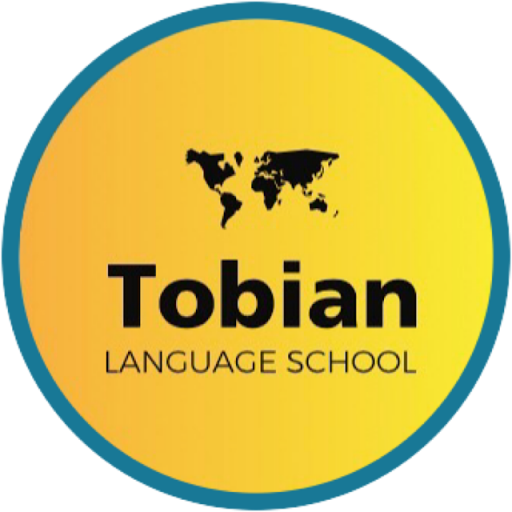Dutch Language Cafés
A complete guide for those wanting to visit them when in the Netherlands
- August 25, 2023
- By Tobias Woudt
Dutch Language Cafés provide a unique opportunity to learn about Dutch culture while practicing the language.
This is a valuable experience for both locals and expats, as it can help to build bridges between different cultures and promote cross-cultural understanding.
In this article we dive deeper into these unique places all over the country.
We’ve even got some tips on how to make the most during your next visit.
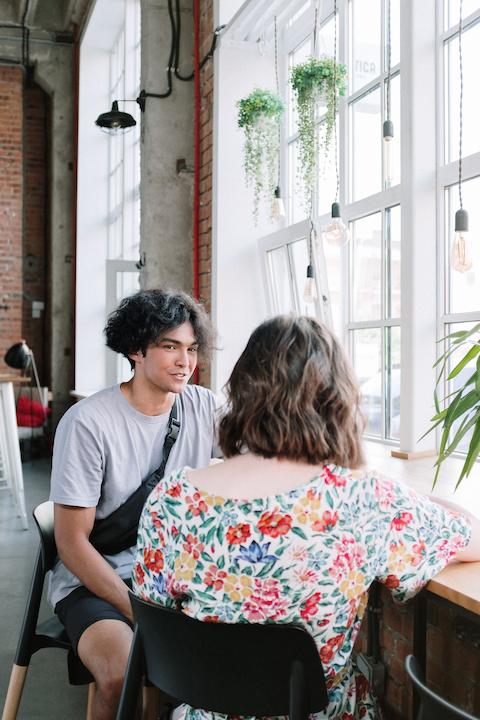
Table of Contents
History of Dutch Language Cafés
The concept of language cafes has its roots in language exchange programs that gained popularity in Europe during the late 20th century.
The first Dutch Language Cafés likely emerged as a response to the growing multiculturalism in the Netherlands, where various language communities sought opportunities to integrate and communicate with the local population.
These cafes provided a relaxed and informal space for language learners to practice Dutch, exchange cultural insights, and form connections.
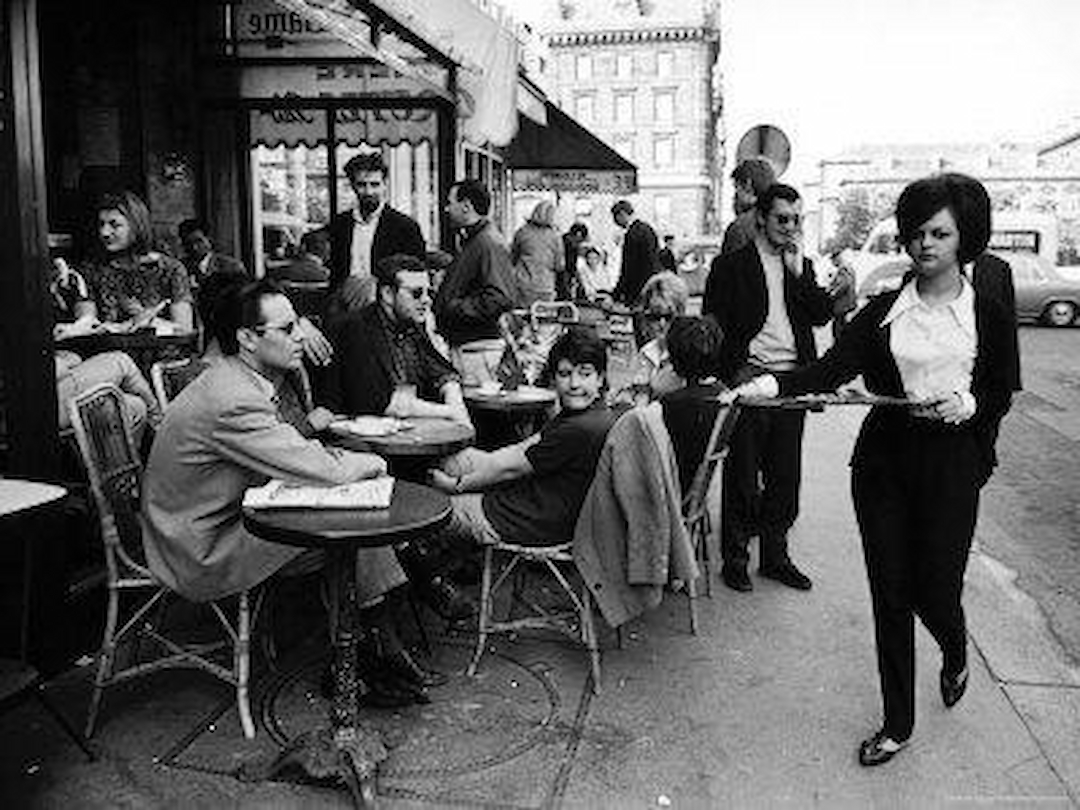
The Essence of Dutch Language Cafés
Dutch Language Cafés, or “Nederlandse Taalcafés” in Dutch, are informal gatherings designed to facilitate language exchange in a relaxed and social setting.
Unlike traditional language classes, these cafes emphasize communication and interaction rather than formal instruction.
Participants are encouraged to engage in conversations, share experiences, and learn from one another in a comfortable and non-judgmental atmosphere.
But there’s more to just language learning in Taalcafés as we explore below.
Exploring Cultural and Linguistic Delights at Dutch Language Cafés:
Language and culture are inextricably intertwined, and what better way to experience the heart of a culture than through its language?
Dutch Language Cafés provide a unique and immersive environment for both locals and expats to dive into the Dutch language, while also delving into the rich tapestry of Dutch culture.
These cafes offer an interactive and enjoyable space where language learners can practice conversational Dutch, exchange cultural insights, and form lasting connections.
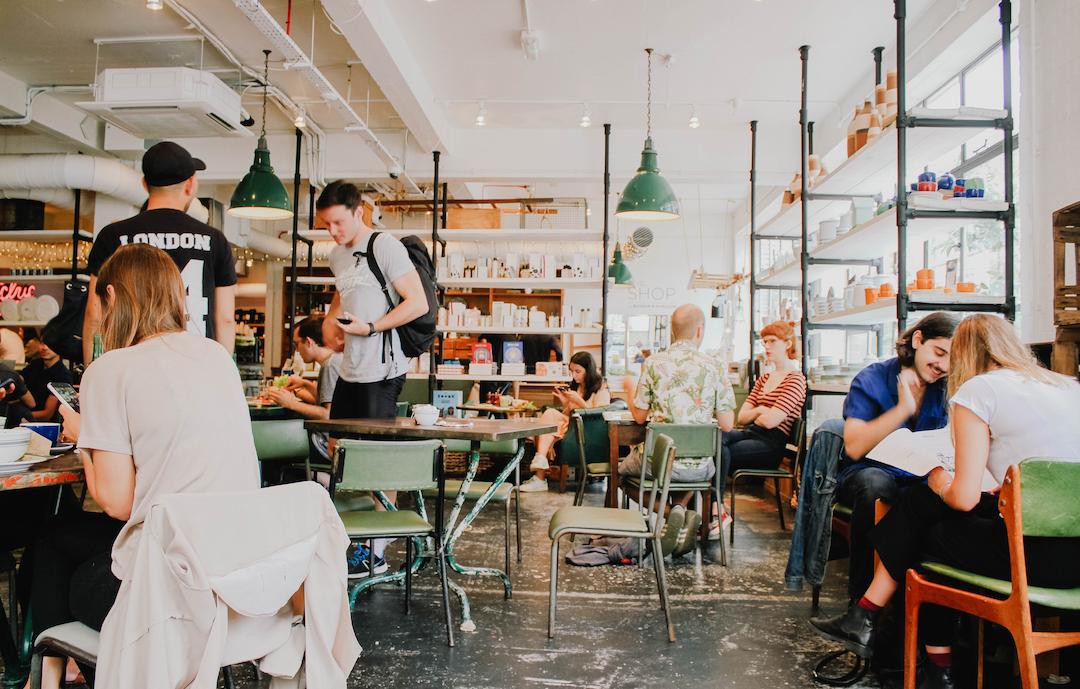
A Bridge to Cultural Understanding:
Learning a language is more than just acquiring vocabulary and grammar rules; it’s about understanding the context and culture behind the words.
Dutch Language Cafés serve as a bridge between language and culture, offering participants the chance to explore Dutch customs, traditions, and ways of thinking.
Discussions often touch on topics such as local festivals, cuisine, historical landmarks, and even the intricacies of Dutch humor.
As attendees engage in conversations, they gain insights that textbooks and classrooms simply cannot provide.
Learning Through Interaction:
In a typical Dutch Language Café, participants are encouraged to engage in casual conversations, group discussions, and language games.
These interactions promote active listening, vocabulary expansion, and fluency development.
Language learners can expect to refine their pronunciation, enhance their comprehension skills, and build confidence in using Dutch in real-life situations.
We mention how crucial this is when trying to learn dutch in our article: How To Learn Dutch?

Community and Connections:
Language learning can sometimes feel isolating, especially for expats who are far from home.
Dutch Language Cafés foster a sense of community and camaraderie among participants. Friendships are formed, networking opportunities arise, and attendees often find themselves part of a supportive network that extends beyond language practice.
For newcomers, this sense of belonging can be invaluable in their journey to integrate into Dutch society.
These special locations are more than just places to practice speaking Dutch; they are hubs of connection, understanding, and personal growth. Whether you’re a beginner or an advanced learner, a local or an expat, stepping into a Dutch Language Café opens the door to a world of linguistic and cultural treasures.
Usage and Experience:
They are often organized by community centers, language schools, or enthusiastic individuals who are passionate about promoting language exchange.
Participants range from expatriates seeking to adapt to Dutch society to students, travelers, and even locals interested in connecting with others and brushing up on their language skills.
The experience at a Dutch Language Café is typically warm and inviting. Attendees engage in lively conversations, share personal experiences, and often play language games that encourage interaction and learning.
These informal settings create a relaxed atmosphere that eases the pressure of traditional classroom learning, making it easier for participants to practice speaking Dutch in a comfortable environment.
The Good and The Bad About Dutch Language Cafés
With the general idea of the “Taalcafés” out of the way let’s now explore the good and the bad about these unique locations across the country.
The Good
Cultural Immersion: Dutch Language Cafés provide a window into Dutch culture beyond language learning, helping participants understand nuances in communication and behavior.
Networking: These cafes are fantastic places to meet new people, form friendships, and build connections that extend beyond language practice.
Confidence Building: Participants gain confidence in using Dutch through real-life conversations, contributing to improved fluency and communication skills.
Supportive Environment: Language learners often find a supportive and non-judgmental community that encourages their growth and progress.

The Bad
Lack of Structure: While the informal nature is a positive aspect, some participants might feel that the lack of structured lessons limits their learning potential.
Varied Language Levels: Attendees come from different language backgrounds and proficiency levels, which can sometimes result in uneven conversations.
Limited Correction: Language cafes prioritize communication over correction, so participants might not receive detailed feedback on their language usage.

Popular Locations:
It’s uncler how many Dutch language cafés can be found in the Netherlands but we have sourced for you some of the best ones we know about:
In Amsterdam:
As the cultural and economic heart of the Netherlands, Amsterdam hosts numerous Dutch Language Cafés catering to both locals and expatriates.
From historic cafes along the canals to contemporary meeting spaces, Amsterdam offers a variety of venues for language enthusiasts to connect.
Why not check out the Amsterdam Language Cafe in Cafe Belcampo.
In Utrecht:
This vibrant university city also boasts a thriving language cafe scene.
Utrecht’s cafes often attract students, expats, and locals seeking a diverse and engaging language exchange experience.
We recommend visiting : The Language Café Utrecht
In The Hague:
With its international character due to the presence of embassies, international organizations, and expat communities, The Hague offers a rich tapestry of language cafes where participants can explore Dutch language and culture.
If you are in the Hague then you should visit: The Dutch Language Café (DLC)
In Rotterdam:
Known for its modern architecture and diverse population, Rotterdam’s language cafes reflect the city’s innovative spirit, providing unique opportunities for language learners to connect and practice.
In Groningen:
Groningen’s thriving Language Café scene reflects the city’s open-minded spirit and commitment to fostering cross-cultural connections.
Language enthusiasts and newcomers to the city have several options to choose from when seeking opportunities to practice Dutch and engage with fellow learners.
We recommend Humanitas which has 2 language cafés in Groningen
Navigating Dutch Language Cafés: 10 Common Mistakes to Avoid
Dutch Language Cafés offer a fantastic opportunity to practice and improve your Dutch language skills in a relaxed and welcoming environment.
However, like any language-learning endeavor, there are certain common mistakes that language learners may unknowingly make.
To ensure you make the most of your experience at a Dutch Language Café, here are some common mistakes to avoid:
1. Speaking Too Much English:
It’s easy to fall back on speaking English, especially if you’re more comfortable with it.
However, the purpose of a Language Café is to practice Dutch.
Challenge yourself to use Dutch as much as possible, even if it means initially struggling to find the right words.
2. Not Listening:
Effective communication is a two-way street.
Don’t just focus on speaking; actively listen to others in the group.
This not only helps you understand different accents and pronunciations but also encourages meaningful conversations.
3. Avoiding New Vocabulary:
If you’re unsure of a word or phrase, don’t shy away from using it.
This is a prime opportunity to learn from others and expand your vocabulary.
Native speakers are often happy to help and correct you, contributing to your language growth.
4. Overcorrecting Others:
While corrections are helpful, overcorrecting others might come across as pedantic or discourage participation.
Focus on fostering a supportive and inclusive environment rather than nitpicking every mistake.
5. Sticking to Your Comfort Zone:
It’s natural to gravitate towards familiar faces or fellow expats, but the goal of a Language Café is to interact with a diverse range of participants.
Engage with different people to expose yourself to varying accents, vocabulary, and viewpoints.
6. Being Afraid to Make Mistakes:
Mistakes are an essential part of language learning. Embrace them as opportunities to learn and grow.
Native speakers appreciate your efforts and will likely offer guidance rather than judgment.
We talk about the importance of making mistakes and learning from them in this article.
7. Ignoring Cultural Context:
Language and culture are intertwined.
Be open to discussing cultural aspects and asking questions to deepen your understanding of Dutch customs, traditions, and etiquette.
8. Treating It Like a Formal Lesson:
While learning is the goal, don’t approach a Language Café as a formal classroom.
Relax, have fun, and allow yourself to learn in a more casual, organic manner.
9. Not Being Patient:
Learning a language takes time.
Don’t get discouraged if you don’t see immediate results. Celebrate small victories and progress along the way.
10. Not Following Up:
If you meet interesting people or learn new vocabulary at a Language Café, make an effort to follow up outside of the café.
This could lead to lasting friendships and ongoing language practice.
By avoiding these common mistakes, you can fully embrace the experience of Dutch Language Cafés.
These informal gatherings provide a supportive space to practice, learn, and connect with others on a linguistic and cultural level.
Remember, the journey of language learning is just as important as reaching fluency, and Dutch Language Cafés offer an exciting part of that journey.
Our Experience With Dutch Language Cafés
Embarking on a journey to learn a new language is a voyage of personal growth, cultural exploration, and connecting with others.
Our experiences with Dutch Taalcafés have been instrumental in shaping our understanding of the Dutch language and culture.
From the challenges we faced to the moments of triumph and connection, our journey within these language cafés has been a testament to the power of immersion and community.
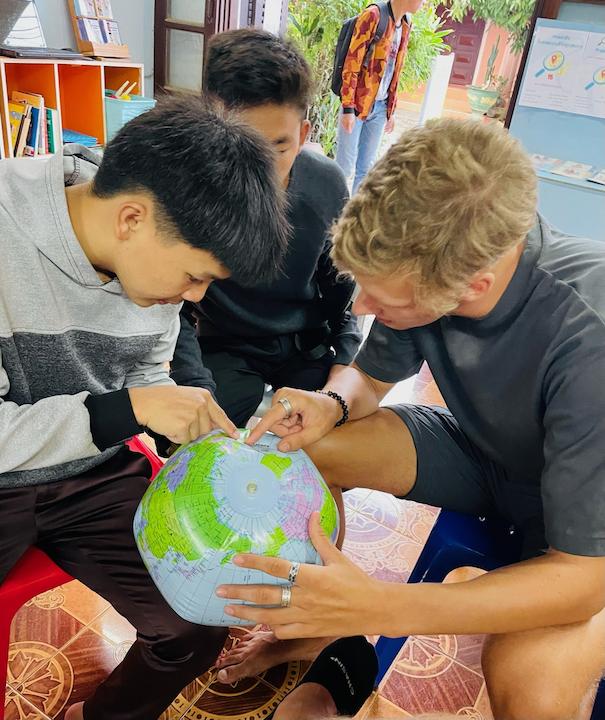
The Future of Dutch Taalcafés: Embracing Digital Connectivity
As Dutch Taalcafés continue to evolve, the future promises exciting opportunities that align with the changing landscape of language learning and communication.
The integration of technology and the expansion of online platforms are set to shape the way these language cafés operate, making language exchange more accessible and versatile than ever before.
Here are some of the points we feel will be important:
Virtual Connections:
The digital age has enabled Dutch Taalcafés to transcend geographical boundaries. Virtual meet-ups, facilitated through video conferencing platforms, allow language enthusiasts from around the world to engage in real-time conversations.
This virtual dimension opens doors for individuals who may not have physical access to a local Taalcafé, broadening the sense of community and fostering cross-cultural connections on a global scale.

Flexible Participation:
Online Dutch Taalcafés offer flexible participation options.
Individuals with busy schedules, varying time zones, or mobility constraints can still engage in language practice, providing an inclusive environment for all language learners.
Asynchronous discussions, language exchange forums, and multimedia resources further enhance the learning experience.
Blending Traditional and Digital:
While the digital realm expands possibilities, the essence of in-person Dutch Taalcafés remains invaluable.
The authentic interactions, immediate feedback, and shared physical space create a sense of connection that digital platforms cannot replicate.
In the future, a blend of in-person and virtual gatherings might become the norm, offering participants the best of both worlds.
Conclusion
In essence, the future of Dutch Taalcafés embraces the fusion of traditional interaction and cutting-edge technology.
As language learning becomes increasingly interconnected and globalized, Dutch Taalcafés are poised to remain a vibrant and relevant platform for language learners to connect, communicate, and celebrate the diversity of languages and cultures.
Whether through physical gatherings or virtual encounters, these cafés will continue to bridge gaps and cultivate understanding in an ever-changing world.
Still in need of Dutch language lessons?
The Tobian Language School is ready to assist you on your journey of learning Dutch.
Tobian Language School offers a wide range of Dutch classes.
If you need to learn Dutch for school, business or because you are traveling: Tobian Language School has an option to suit your needs.
With our comprehensive and international group of teachers we can help you with all kinds of lessons.
At the Tobian Language School you choose when you take your lessons and study materials are included. Group lessons are starting from €15 and private lessons are starting from €22,50.
For more info about our Dutch language courses click the button below.

Tobias is a polyglot, traveller and founder of the Tobian Language School.
